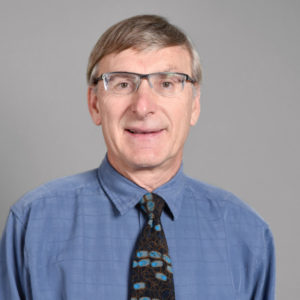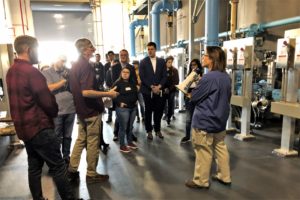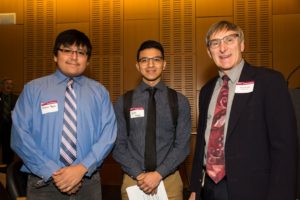We are pleased to highlight one of the network’s outstanding faculty members, Mr. Al Brown. Al is a Senior Lecturer and the Director of Environmental Research Initiatives at ASU’s Polytechnic campus. He is also Faculty with the Environmental Technology Management program. Al participated in the program’s inaugural partnership year, and has facilitated a total of 5 student projects with Project Cities, since 2017.
Al comes to ASU with an impressive background in public service, most recently serving as the Director for the Maricopa County Environmental Services Department, and various managerial roles with Arizona Department of Environmental Quality (ADEQ) before that. Mr. Brown began his public service career working in food safety compliance with Pinal county and ADEQ.
In the mid-80s Al Brown transitioned into the newly-formed ADEQ to work on protecting Arizona’s groundwater. He also worked with the ADEQ and the Arizona Department of Health Services. Mr. Brown’s educational background is in zoology with a Master of Public Administration from ASU.
Al has worked on 5 different projects with Apache Junction, Glendale, and Peoria. In 2017, Al and his students worked with the City of Apache Junction to reform the Solid Waste Management Program. With the City of Glendale, Al worked with students on identifying alternate markets for components of the city’s recycling program. Another project with the City of Glendale involved developing management recommendations for the city’s above ground storage tanks program. His most recent class project worked with the City of Peoria to address difficult recyclables such as Styrofoam and textiles.
Question: Describe your experience with project based learning prior to working with Project Cities.
Answer: Hands-on, project based learning is not new to Al, who says that the ASU Polytechnic campus is an applied learning setting. “We have had projects in our classes ever since the degree program was created. Most of these projects are things such as volunteer activities, where we’re encouraging the students to work with other groups around the metro area and oftentimes it resulted in field trips with the entire student group going out to be educated.”
Question: Were there any standout experiences with the program, maybe with specific students on one of the reports, or group of students work that really blew you away?
Answer: Mr. Brown describes an Apache Junction that is visually different experience than four or five years ago. Following the students work with Apache Junction, there is far less litter and no open burning of trash according to Mr. Brown. It has been described as rewarding to see that kind of change and the city level. In addition, changes in the City of Peoria and City of Glendale’s recycling programs are continuing. Also, and perhaps the most exciting outcome of all, Mr. Brown observed that many past students have landed excellent jobs in city government, state government, federal government, tribal nations, and the private sector.
Question: What drew you to the Project Cities program? How did you get involved?
Answer: Mr. Brown was introduced to the Project Cities program through Dr. Nalini Chhetri and Sustainable Cities Network Director Anne Reichman. Mr. Brown gave them a list of classes and project settings and was matched with a city. “It struck me as something that students could learn from in a unique way and in a very rewarding way, engaged way and be a delightful change from the so-called Death by PowerPoint.”
Question: From beginning to end it sounds like a lot of work goes into setting up these projects and completing the final deliverable. So, why do you do it?
Answer: “Students will learn what it takes to produce a work product for a client in almost every job setting. After they graduate, they will be asked to what to do that whether it’s for a government agency or a private entity. So, while they’re doing it on behalf of Project Cities, and ASU faculty, they have an opportunity to see what it’s really like to develop that kind of a work product.”
Project Cities is a member of the Educational Partnerships for Innovation in Communities Network (Epic-N) and is administered by ASU’s Julie Ann Wrigley Global Futures Laboratory and the Sustainable Cities Network. Stay up to date with Project Cities and the Sustainable Cities Network by following us on social media or subscribing to our newsletter.


